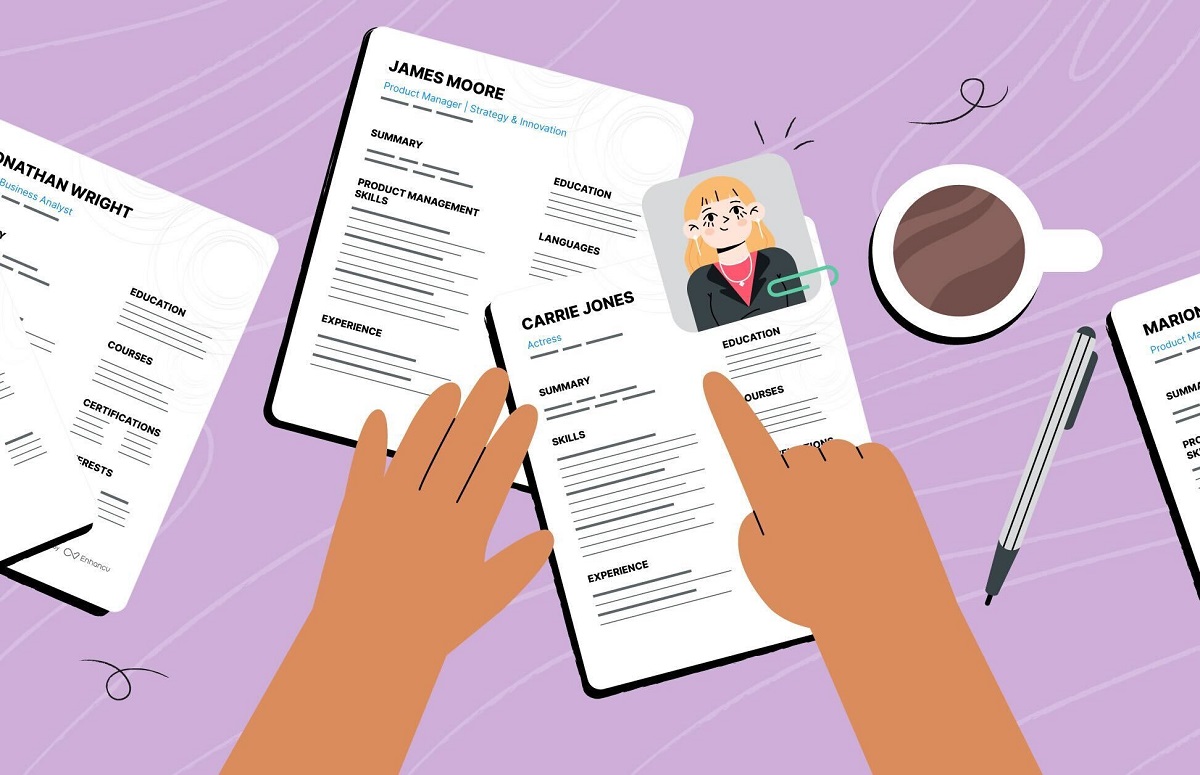When you are applying for the job you want, your CV has the most important role. What your CV shows the employers is who exactly you are and what things you can do. However, many people sometimes make mistakes and add things that do not help their case even a little bit. In this very blog, we will have a detailed talk about seven things that you should not put in your CV.
These seven things, however, can make your hiring manager see you very differently. They also might not care about your age or hobbies. Instead, they focus on the skills and experiences that matter the most for the job. Always keeping your CV very clear and simple will only help you to put a better impression. Let’s have a look at what to avoid to create a great CV.
Detailed Breakdown of 6 Things
1. Personal Information
When you are writing your CV, you must keep your very personal information limited to enough point. You must not add the details like your age, your marital status, or your religion as they are not that important. And these items also do not show the skills or abilities that you have. Recruiters want to be aware of what things you can do, not the details about your personal life.
Moreover, try to not share your ethnicity or political views of yours. These two details are not that important in a professional job application. Always keeping your CV focused just only on the skills that you have and your experiences can make employers see your value.
2. Salary History
Writing your professional CV does not mean that you have to share your past salary from the previous company or how much money you want from this new one. This type of information is, we must say, not needed and can cause serious problems for you. Employers who have spent some serious time in the industry can give their focus too much on what you have earned before, which could lead to lower pay in your new job.
Keeping your salary details out of your professional CV can give you power to negotiate better in the interview. If the company has a liking for you and your skills, they should automatically give you a fair salary according to your skills and the position, not just on what you made before. Just keep your focus on your strengths instead and let the employer decide on a fair wage based on what you can bring.
3. Unimportant Hobbies
It is the best option to just keep all of your hobbies simple and relevant while writing your professional CV. If, for example, your hobbies that you mention in your CV do not give a connection to the job you want, you should leave them out for a better impression. What this does is to help your professional CV to always stay focused and to show that you mean only important business.
Also, listing a lot of unimportant hobbies in your professional CV can eat up the space from your document. Writing hobbies instead of writing down your skills might make you look like someone that is not serious about the job. Just make a quick decision and choose one or two hobbies that relate to the job the most. As a result, you present your interests but also your perfect fit for the position.
4. Full Mailing Address
It is quite very common to add the city and state in your professional CV. However, it might be best to just leave out your whole mailing address in the CV. Because sharing much of the personal information can become a great risk to your own privacy. Everyone always wants to keep their personal information safe and secure, so that it might not get into the wrong hands.
Instead of writing down your complete address, you can only just mention your city and the state. As a result, the hiring managers can easily understand where you are from without knowing all the private details. Just remember, all of your skills and experiences are what matter the most. Always focus on those instead of your personal details that don’t help you get the job.
5. Spelling Mistakes
Spelling mistakes can make your CV look unprofessional. Even small errors can change the meaning of what you want to say. If a hiring manager sees mistakes, they might think you don’t pay attention to details. This can hurt your chances of getting the job you want.
To avoid these mistakes, take time to read your CV carefully or use online resume makers tools to scan it. You can also ask a friend to help check it for you. A fresh pair of eyes might catch errors you missed. Making sure your CV is clear and correct can help you make a good impression on employers.
6. Accomplishments Not Duties
When writing your CV on your own or using a top CV editing agency in UK, focus on your accomplishments instead of just listing your duties. Employers want to see what you have achieved in your past jobs. Talk about the results you got and how you helped your team or company succeed. This shows your value.
For example, instead of saying you managed a team, mention that you led a team that increased sales by 20%. This gives the employer a clear picture of your skills. Discuss what you did and the positive impact it had. It’s important to make your successes stand out for a better chance at getting hired.
Conclusion
In conclusion, your CV should show the best of you. By leaving out personal details and mistakes, you can make a better impression on employers. Focus on what matters most, like your skills and achievements, to help you stand out.
Remember, a clear and simple CV is more effective. Only include information that matches the job. This way, you can get noticed for the right reasons. Keeping it brief helps employers see what you can do quickly, making it easier for them to consider you for the job. Good luck with your job search!









